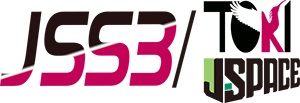Analysis of aerodynamic interference between rotor and propeller
JAXA Supercomputer System Annual Report February 2024-January 2025
Report Number: R24ETET02
Subject Category: Skills Acquisition System
- Responsible Representative: Kanako Yasue, Aviation Technology Directorate, Aviation Integration Innovation Hub
- Contact Information: Takeshi Akasaka, Kanazawa Institute of Technology(akasaka@neptune.kanazawa-it.ac.jp)
- Members: Wataru Morita, Hideaki Sugawara, Takeshi Akasaka
Abstract
In Japan, the realization of electric vertical take-off and landing (eVTOL) aircraft are being researched and developed. The interaction between the rotor wake and the propulsion propeller creates a complex flow field that can affect both aerodynamic performance and noise on the eVTOL aircraft which consist of multiple rotor and propeller. This project investigates the aerodynamic performance and noise resulting from the aerodynamic interference between the rotor wake and the propulsion propeller.
Reference URL
N/A
Reasons and benefits of using JAXA Supercomputer System
To analyze the aerodynamic performance and noise of lift and cruise type eVTOLs using the CFD solver "rFlow3D" and acoustic analysis tool "rNoise" developed at JAXA.
Achievements of the Year
Investigation of aerodynamic interaction phoenomenon between a lift-rotor and a proplusive propeller through numerical simulations are performed. Lift and cruise aircraft is assumed in this study, and the computational model is simplified as a single lift-rotor and a single propeller. The aerodynamic interference between the rotor wake and the propulsion propeller is investigated by varying the propeller position and the advance ratio (Fig. 1). It is found that the torque and efficiency of the propulsion propeller change depending on the propeller position.
Publications
N/A
Usage of JSS
Computational Information
- Process Parallelization Methods: N/A
- Thread Parallelization Methods: OpenMP
- Number of Processes: 1
- Elapsed Time per Case: 336 Hour(s)
JSS3 Resources Used
Fraction of Usage in Total Resources*1(%): 0.07
Details
Please refer to System Configuration of JSS3 for the system configuration and major specifications of JSS3.
| System Name | CPU Resources Used(Core x Hours) | Fraction of Usage*2(%) |
|---|---|---|
| TOKI-SORA | 0.00 | 0.00 |
| TOKI-ST | 585510.05 | 0.60 |
| TOKI-GP | 0.00 | 0.00 |
| TOKI-XM | 0.00 | 0.00 |
| TOKI-LM | 16133.02 | 1.16 |
| TOKI-TST | 0.00 | 0.00 |
| TOKI-TGP | 0.00 | 0.00 |
| TOKI-TLM | 0.00 | 0.00 |
| File System Name | Storage Assigned(GiB) | Fraction of Usage*2(%) |
|---|---|---|
| /home | 21.31 | 0.01 |
| /data and /data2 | 134351.30 | 0.64 |
| /ssd | 218.26 | 0.01 |
| Archiver Name | Storage Used(TiB) | Fraction of Usage*2(%) |
|---|---|---|
| J-SPACE | 0.00 | 0.00 |
*1: Fraction of Usage in Total Resources: Weighted average of three resource types (Computing, File System, and Archiver).
*2: Fraction of Usage:Percentage of usage relative to each resource used in one year.
ISV Software Licenses Used
| ISV Software Licenses Used(Hours) | Fraction of Usage*2(%) | |
|---|---|---|
| ISV Software Licenses(Total) | 0.00 | 0.00 |
*2: Fraction of Usage:Percentage of usage relative to each resource used in one year.
JAXA Supercomputer System Annual Report February 2024-January 2025



